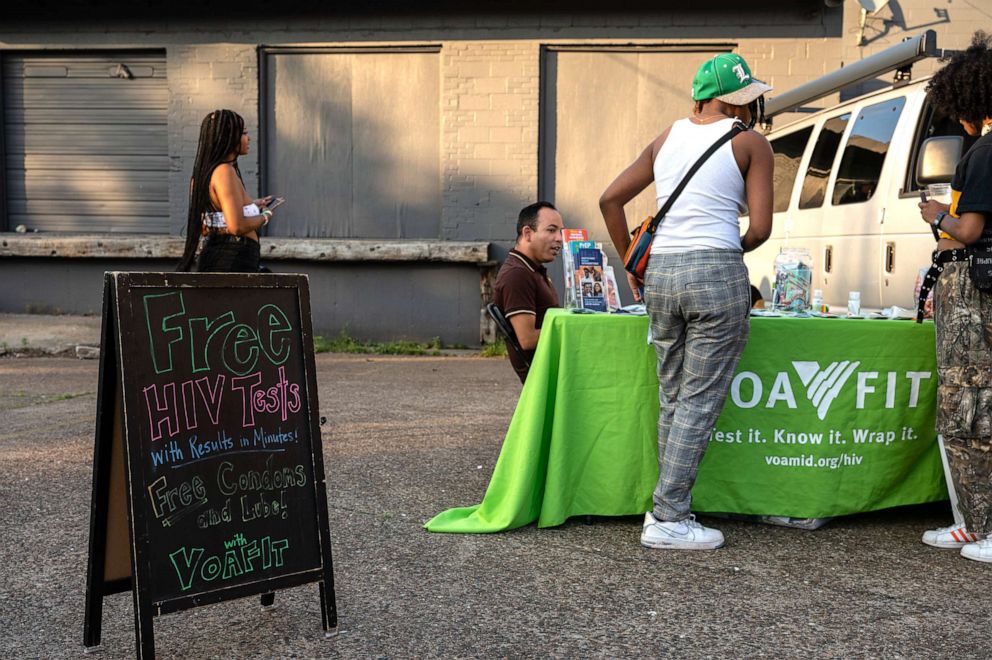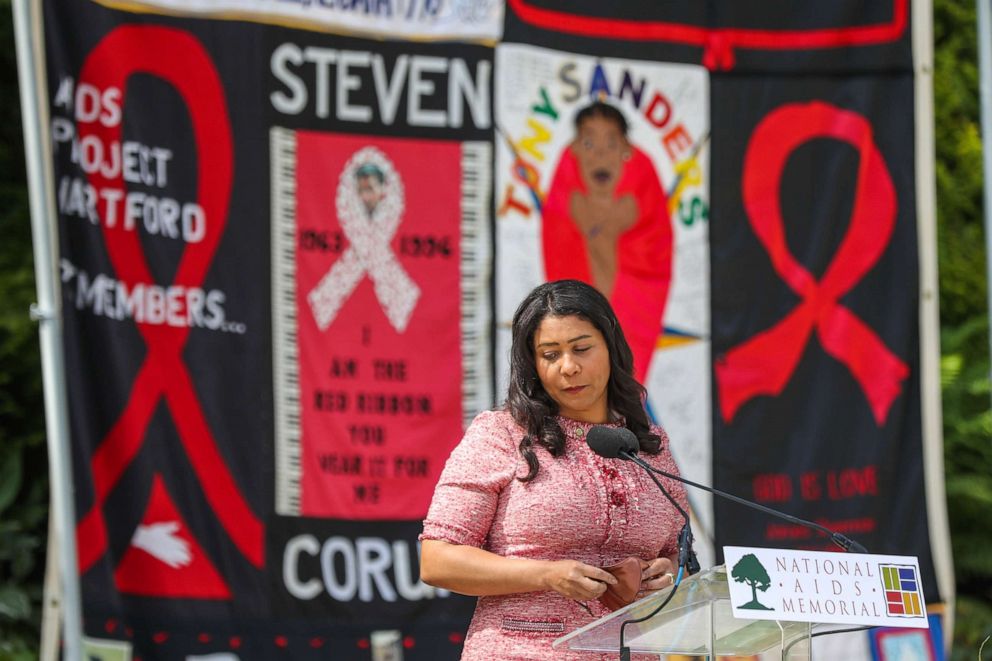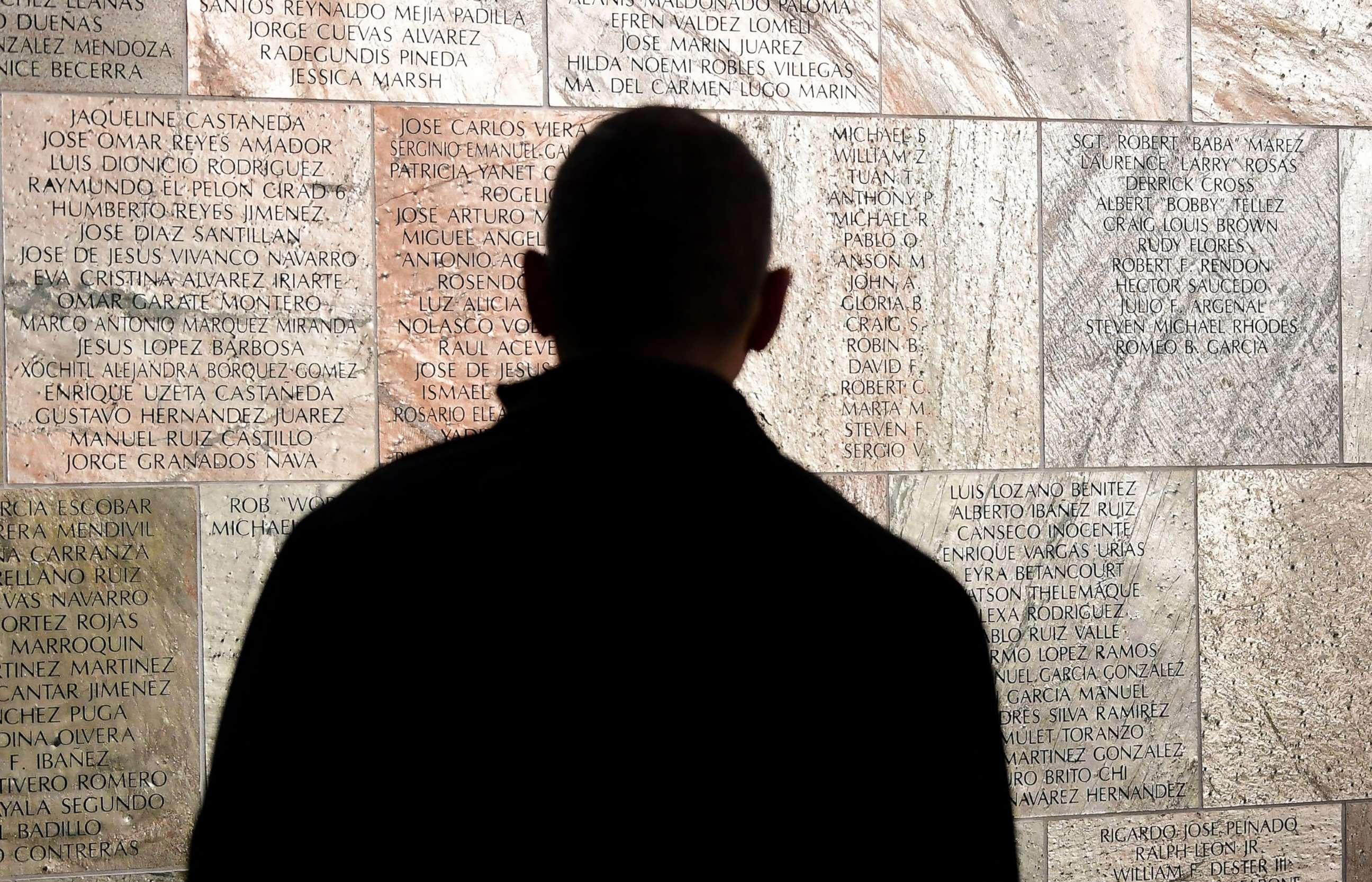Federal government to direct almost $44 million to populations at risk for or living with HIV/AIDS
People of color are disproportionately at risk for HIV/AIDS.
The federal government is investing in the health and wellness of individuals at risk for or living with HIV/AIDS through mental health and substance use services from the Department of Health and Human Services (HHS).
In a release sent to ABC News, HHS announced Friday that $43.7 million dollars from the agency's Overdose Prevention Strategy will go towards three new grant opportunities that will be especially be targeted to underserved communities of color.
In 2020, there were almost 40 million people around the world living with HIV, according to the HHS. In the U.S., there are approximately 1.2 million people who have HIV, though about 13% don't know it and need to be tested.

In the U.S., people of color have been majorly overrepresented in HIV diagnoses, due to a range of socioeconomic factors that increase their risk for HIV and HIV-related outcomes.
Black people represent approximately 40% of people with HIV, but make up only 13% of the US population, according to HHS's latest statistics from 2019. Hispanics and Latinos composed 25% of people with HIV, but make up 18.5% of the population.
The HHS reports that this disproportionate impact of Black and brown communities is also reflected in the demographics of newfound infections, demonstrating that prevention and treatment services are not reaching those who need it most.
"We remain committed to providing people at risk for, or living with HIV/AIDS, with the support and services they need to thrive – no matter who they are or where they live," said Health and Human Services Secretary Xavier Becerra.

According to HHS, the funding targets areas of the country with the greatest disparities in HIV-related health outcomes and aligns with the National HIV/AIDS Strategy.
"We must increase supports and services for those who are at risk for or living with HIV/AIDS and have mental health and substance use needs," said Miriam Delphin-Rittmon, HHS Assistant Secretary for Mental Health and Substance Use and the leader of Substance Abuse and Mental Health Services Administration.
She added, "This means connecting them to easy-to-access, culturally appropriate prevention, treatment, and recovery services."
One grant will fund substance use disorder treatment programs for racial or ethnic minority populations at high risk for HIV/AIDs.
Another program will provide training and education around the risks of substance use and HIV/AIDS, as well as with community health workers, neighborhood navigators and peer support specialists to ensure that services are reaching those in need.

The third program, the Minority AIDS Initiative, aims to reduced the "co-occurring epidemics of HIV, Hepatitis, and mental health challenges through accessible, evidence-based, culturally appropriate treatment that is integrated with HIV primary care and prevention services."
Anyone seeking treatment for mental health or substance use issues is urged to call SAMHSA's National Helpline at 800-662-HELP (4357) or visit findtreatment.samhsa.gov.




